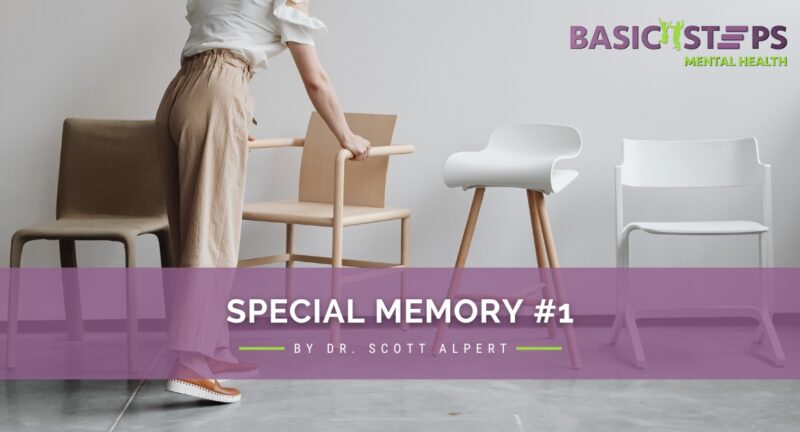
The Pitfalls of Always Having to be Right
Do you have to be right all the time? This has roots in early development. If your family got their entertainment by putting other people down, then in doing this now, well… they trained you well. According to Sigmund Freud, our Super-Ego houses the rules in which we live. Many of these rules we handed down by our family and of course society as well. If others are doing something wrong, this center in your brain activates and you get a reaction!
The Super-Ego is the part of our Psyche in charge of keeping your mind free from anxiety. If there is an inkling of something that might hurt you, it springs into action! Unfortunately, many of the rules we have were created when we were young, with little life experience. It follows that maybe these rules may be a bit out of date.
Learning how to amend these “Limiting Beliefs” is one strategy for easing our minds and providing peace. (There are many more, but let’s focus on this one right now). When you have to be on top and win at all costs you may be addicted to being right.
No Right and Wrong, Only Learning
What if there was no “Right” and “Wrong”? While learning how to be a therapist, our school believed there was no right or wrong but only learning. This, you may think, can lead to chaos! In the extreme, it would. It soon became apparent that it is important to keep our rules but only apply them to ourselves. Who are you to inflict your rules onto others? Parents, of course, need to teach their children, but when it comes to everyday interactions, do you find yourself judging the actions of others? If so, there are some great tools to use to minimize this and do the healthier thing by paying more attention to the actions of your own.
My father used to say, “When you point your finger at someone three fingers pointing back to you.” So I learned how to point with all my fingers pointing straight ahead. In all actuality. Freud believed that we were mirrors of one another. He termed this “Projections”. Like a movie projector, we were projecting our faults onto them. And let’s face it, as we look at others we judge. At the market, while driving, at work, at dinner, with our friends, and especially with family. AA says: “If you spot it, you got it”. So, embrace it. Own these projections because in doing so, the healing process can begin.
When you make yourself right, you make the other person wrong. In relationships, will this make you closer? These “Transactional Relationships” spell disaster! You might win the battle but lose the relationship. In the 1960s the slogan was: “Make love not war!” Instead of focusing on being right, why not focus on bonding in love? Instead of scrutinizing other people, catch them doing something right.
“When you judge people, you don’t have time to love them”. – Mother Theresa
Focusing on Your Actions
To get into the trenches of this type of work, it is important to take an honest look at your inner rules that you believe that “everybody should follow”. Should everybody follow your rules? In doing this, you make yourself judge and jury of all. Pretty exhausting wouldn’t you think? It is a full-time job to focus on you following your own rules anyway. As your dependence on the actions of others fades away, now the work begins – focusing on your actions.
The rules in our Super-Ego are arbitrary. For example: “Don’t go into the express check out with a few more items?” Really? And we get all riled up because of people violating this? Is it really important to have not only have an emotional reaction but a physical one as well? Physically the digestion gets hampered, the blood pressure goes up, and mentally we can’t think clearly because when triggered, the higher functions of the brain go offline. Righteousness creates disease. You are not at ease with yourself = Dis Ease.
“The price of peace is righteousness.” – Ezra Taft Benson
Broken Rules
Think of a recent time in which somebody upset you. What rule of theirs did they break? In our program participants pair off into duos, practice a counseling skill and at the end, we look at the limiting beliefs (rules) we discovered. Each rule then gets amended.
Here’s an example: Let’s say you are at work and a coworker complained about your work performance. The first step is to list the judgments you had towards them. In this example, the judgments could be: They were rude, disrespectful, controlling, negative, bossy, arrogant, etc. Next, we look at how we do the same thing in our current life or in the past – basically owning the projection. Finally, we look at the underlying Ego Rule that they violated. In this example: “Coworkers who push into other people’s business are rude”.
The next step is to amend the rule. The easiest way is to personalize the rule.
For example, “I choose to focus on my business and others are going to do what they do and are doing the best that they can.”
Taking the high road and highlighting only your rule for yourself makes life less complicated and creates more peace. Think about this: the more triggered you get, the more likely it is that they are a reflection of you. In being angry at them you displace the real anger and that is anger towards yourself. Therefore, all efforts need to focus on changing yourself because we cannot change others – it is not our job but theirs. That is unless you want to be like your parents and carry on their tradition.
NOTE: It is not solely about your parents. This could be a system that was created with friends or with your partner and now you lay victim to it.
Can you really change another person? To be honest, we have no control over them. People are just going to be people. When we let go of our attachment to making everybody just like us and letting people live the life of their choosing, life gets much simpler.
As you take the weight of the world off of your shoulders and allow yourself to live your life to the best of your ability, all you can do is model the behaviors (or rules) that are important to you. Let others figure out things on their own as you did. Now, if they ask you for advice, that is different. In this case, they are open to your input. If they don’t ask, don’t advise.
Learning Through Trial and Error
Understand that we are all on our own life journey. We learn through trial and error. You may be an expert in many facets of your life and others are experts in many areas too. Don’t assume that others have your same life experience and use your set of rules. These rules are only your rules. Allow people to learn about life through their own efforts. Who put you in control of everyone and everything anyway?
Amending limiting beliefs has saved a current relationship of mine with a friend. My friend and I have different standards on pretty much everything. When he does something that upsets me, I look at the rule he violated. Next, I take the opportunity to see how I violate this same rule and then make adjustments in myself. It is humbling to remember that when I am judging somebody else, I am really judging me.
So, let go of your self-judgments, or, to be more realistic – reduce your self-judgments by “Owning” the fact that “If you spot it you got it”. Then set clear intentions to improve your thoughts, beliefs, and actions.
“Mistakes are always forgivable if one has the courage to admit them.” – Bruce Lee
Compassionate Care is Always Available
There are many more tools and strategies you can use in your pursuit of happiness. Here is where we come in. Contact us at Basic Steps Mental Health and let us support and educate you on this journey back to your loving heart center. Imagine living a heart-centered life, regardless of what is happening externally. We’d love to be of help.
For 25 years, Dr. Scott Alpert, the clinical director of Basic Steps Mental Health, has treated over 7,000 people with mental health and addiction problems, using a Psychological approach that mixes and matches ten of the top approaches used in the industry.
Related Posts
A Tribute to my Father
When I was five years old my mother divorced and married her soul mate – if there...
Special Memory #1
Now in my 30th year as a therapist, I thought it would be great to reminisce...




